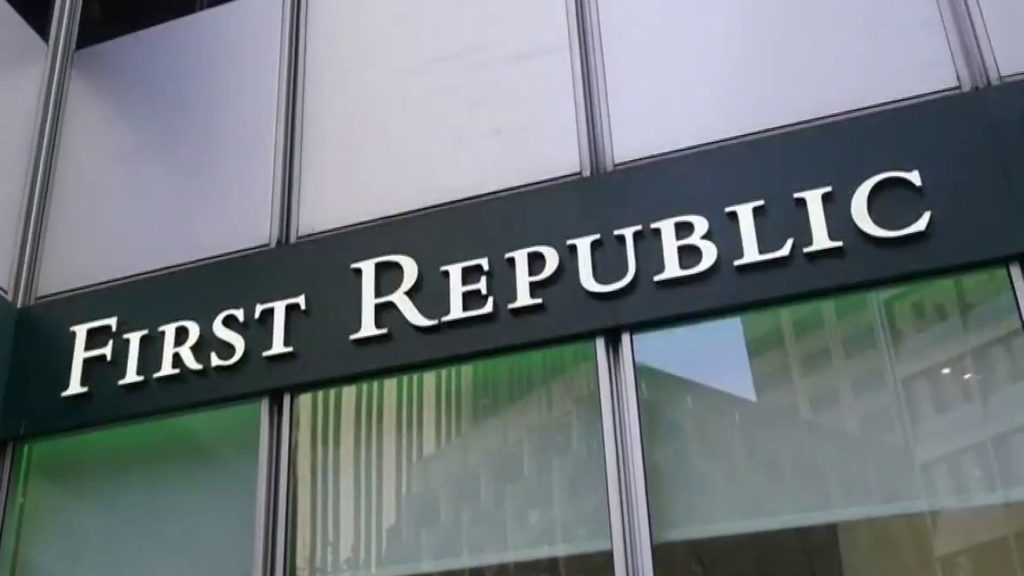Originally published in The Next Recession.
First Republic is the third bank to fail after the Silicon Valley Bank (SVB) and Signature. In total, $47bn in bank assets have disappeared into smoke, the losses being taken in part by the shareholders and holders of the bonds in these banks. But there has also been a cost to public funds. The Federal Deposit Insurance Corporation (FDIC) is a public body financed by contributions from all the banks. The cost of arranging and financing the cost of these bankruptcies and takeovers is estimated at $20bn (for SVB), $13bn (for First Republic) and $2.5bn (Signature). So around three-quarters of the total losses are being taken by the FDIC. The FDIC will ask for new levies from the banks, so the burden will eventually be shared, but at the expense of reducing bank lending for households and business and at higher interest costs.
One bank that is not going to lose is JP Morgan. The takeover of First Republic looks like a great deal for JPM. JPM is paying the FDIC $10.6bn, for which it is getting $185bn in interest-bearing loans and securities. In turn, JPM is taking on the deposits of First Republic and First Republic’s outstanding borrowing from the Fed. But the FDIC is providing a $50bn credit line to JPM over five years so that any further fall in deposits or defaults on First Republic loans are covered. In other words, JPM will not have to get expensive borrowing from the Fed as it has a special FDIC loan on easier terms. Small banks may wonder why the largest bank in the US gets a special cheap loan facility.
JPM will now own First Republic assets for $10.6bn. JPM’s chief Dimon says it will make about $500m a year from these assets, which it deserves for taking on the risk of First Republic’s debts. But that is clearly an underestimate – it’s more likely to be a profit of $1bn a year at current loan rates to businesses and especially the low rate that the FDIC has arranged for JPM to borrow. That’s what First Republic earned in its last quarter. So that will add 2% to annual profits from JPM. Moreover, the FDIC has agreed to take 80% of any losses on loan defaults! JPM’s stock price went up by $11bn in one day on the news. So even JPM’s payment to the FDIC has been covered immediately.
These banking collapses offer yet another powerful argument for public ownership of banking. If the three banks had been nationalised, the $35bn being spent by the FDIC to hand over the assets of these banks to larger ones could instead have been used to restructure them into public banks that would have delivered over time sufficient income to make profits for the government (FDIC), not for the likes of JPM.
The other lesson of this crisis is the failure of regulation as the alternative to public ownership. In a special report commissioned by the Fed on the SVB debacle, the blame was laid on the reduction in regulation of smaller banks under the Trump administration. The Democrat administration likes that conclusion, but the report provided no evidence that the Trump changes made any difference to preventing the collapse of any of these banks. The history of regulation, whether applied to large or small banks, has shown to be a total failure.
So now we have had three banking busts, leaving JP Morgan in an even more dominant position in the banking sector, now with 12% of all customer deposits in the US. In the 2008 financial crash, the cry was there were many large banks that were ‘too big to fail’. Fifteen years later and the big banks are even bigger – but not too big to fail as the collapse and takeover of Swiss bank Credit Suisse last month proved. Indeed it is ludicrous that the now huge Swiss UBS bank remains in private ownership, subsidised by the state, instead being publicly owned.
And as long as the Federal Reserve and other central banks keep raising their ‘policy’ interest rates, driving up the cost of borrowing and tightening credit, there remains the increasing danger of further bank collapses down the road.
The case for public ownership is overwhelming, not only of middle-sized banks like First Republic that get into trouble, but also of the big mega banks like JP Morgan, increasingly becoming powerful monopolies. Public ownership, democratically run would end banking as a wasteful, corrupt and unstable money-making machine paying grotesque salries, bonuses and capital gains for a small clique of super-rich speculators (speculating with our deposits) and instead turn it into a public service for its customers, households and businesses, with any profits going to the country as a whole.










